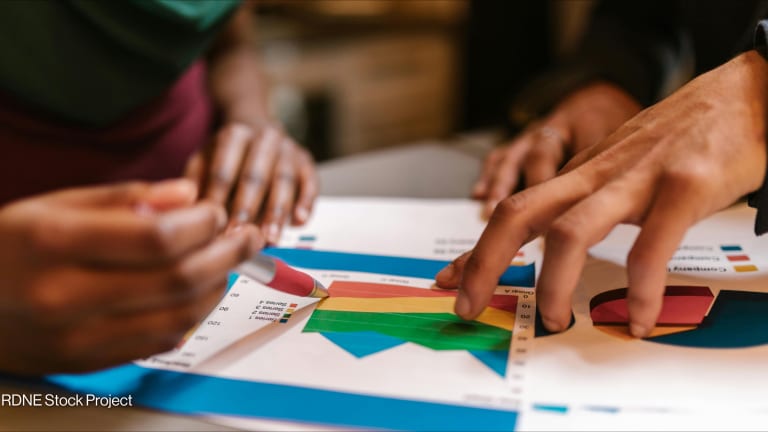
The devastating COVID-19 blow was like an X-ray exposing the global fault lines of xenophobia, structural racism, inequalities, climate crisis, and authoritarianism.
Where is the international development community amid these titanic fault lines? Mute bystanders? Or can we play a role to further the rights and development of those who need it most?
The development community needs to confront some deeply political questions about our own architecture, particularly how power is distributed in the sector.
ActionAid moved its headquarters from London to Johannesburg, followed by Oxfam moving its headquarters from Oxford to Nairobi. However, these bold decisions did not substantively shift power to the global south as organizational resources — human and financial — continue to be in the global north.
The international development model continues to be rooted in a deeply colonial framework going against the professed ethos of development that should be bottom-up and locally rooted. Power remains concentrated in the global north along with decision making, resource allocation, and knowledge production. Here are some key areas to act on if we are to avoid a path to irrelevance.
The power of money
Some studies estimate that only a fraction of development assistance goes directly to groups based in the global south. The African paradox — true for all low- and middle-income regions — of money leaving the continent more than the money entering the continent as aid must end.
The bilateral aid model also deserves to be reexamined entirely. Many people believe that bilateral aid is strings-attached and essentially a foreign policy instrument. An apolitical understanding of the power of money will only perpetuate poverty and maintain the international development sector as a conduit of neo-imperialism.
As our sector increasingly acknowledges the colonial history and neocolonial model it is built on, we need to start viewing monies raised in the global north not as charity or aid but as solidarity and support. We must first decolonize our own spaces by transferring decision-making on financial allocation and use to the global south.
And if a framework of reparation is too radical, one of solidarity can give agency to the local players on the front lines.
Corporatization of development
International development actors are replicating corporate systems in the hope of greater efficiency and scale. This shift is increasing transactional costs and decreasing agility and is certainly replacing a people-centered approach with business plans and targets.
The corporatization of the development world makes it focused on defending its own business interests instead of being driven by the mission of a “sustainable and just future.”
We need to revisit and reaffirm the primary role of development players as a catalyst for change and ensure a redistribution of power in favor of the marginalized. Corporatization should not be allowed to compromise this possibility. The development sector needs the courage to challenge entrenched vested interests, which is often messy, but this offers the possibility of real change.
Transformative change
In their vision, a large number of development organizations have a commitment to transformative change. Yet they often work on incremental change, shying away from the focus on transformative change. It is an odd paradox.
These organizations understand that without structural change, even the minor gains achieved are at risk of reversals. The rise of populism and authoritarian regimes that we are seeing is a case in point, as human rights in these contexts take a nosedive.
The gap between rhetoric and reality is serious. It is true that transformative change is deeply political and confrontational. The self-interests built around government aid or charity money bring in too much inertia.
It is critical that development actors recognize the need for larger systemic reversals and bring their focus back to transformative change by prioritizing human rights — civil, political, economic, cultural, and social rights — systemic change, and human dignity.
Staying behind the curve
As an insider, I have been privy to legendary stories of how Oxfam supported the anti-apartheid struggle in South Africa. Several international development actors have a rich legacy of supporting and strengthening epoch-making struggles for change.
While authoritarian power is getting consolidated, powerful counternarratives are typically scripted through social movements, challenging injustice. We regularly see powerful citizens’ movements: In Hong Kong, against the might of the Chinese regime; India’s protests against discriminatory citizenship laws and farm laws; the Black Lives Matter wave in the U.S.; or global youth-led climate activism such as Fridays for Future, to name a few.
These are expressions of people’s anger and have erupted throughout history — think of the Occupy movement or Arab Spring. Time and again, discontent has been simmering, but international development actors have been completely behind the curve.
As these people’s movements challenge power, development groups remain disengaged and lost in the bubble of “development,” missing a relevant role in these historic times.
Instead, we as a sector need to build alliances with social movements, trade unions, farmer associations, youth and students unions, journalists, and progressive artists to form a rainbow coalition for democracy, justice, and dignity.
The path ahead
International development is currently on a path to irrelevance amid the monumental global transformations we are witnessing.
Our sector can decide to make some fundamental changes to remain relevant by completely decolonizing itself, moving from a “white man’s burden” approach to genuine solidarity, and by engaging substantively in political battles for a just and sustainable future.
Democratizing power is at the heart of the much-needed transformation of international development to avoid this path to irrelevance.








